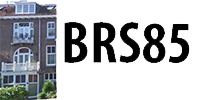
Arjan van Hessen1, Franciska de Jong1, 2, and Stef Scagliola2
1 Human Media Interaction Group, Universiteit Twente, The Netherlands
{a.j.vanhessen, f.m.g.dejong}@utwente.nl
2 Erasmus Studio, Erasmus Universiteit Rotterdam, The Netherlands
Abstract
In this contribution we describe a collection of approximately 400 video interviews recorded in the context of the project Croatian Memories. This project has the objective to document personal war-related experiencesthat cannot be found in written sources and that provide important informationfor the process of reconciliation and dealing with the past.
Introduction
The 20th century has been characterized as the ‘The era of the Witness’ (Annette Wieviorka), while the 21st century has been labeled ‘The End of Forgetting’ (Jeffrey Rosen). The latter concept refers to the wide availability of technology for bearing witness and preserving memories. But apart from preventing forgetting, technology can also play a role in dealing with the burden of the past and in facilitating reconciliation programmes in post-conflict regions. In the project Croatian Memories (in short: CroMe) this potential has been taken up by collecting personal testimonies from minorities in Croatia that are hitherto not well-represented in the public realm and presenting them on an online platform that provides access to these narratives. Citizens from all social layers and regions in Croatia were interviewed about their personal memories on war and trauma. The project is covering three timeframes: WWII, the period of socialist Yugoslav, and the war of the nineties. The interview collection will be launched in the fall of 2013.
Guided by the interviewer’s questions and responses, the interviewees present a personal narrative about their experiences. The interviews have a duration varying between 40 and 200 minutes approximately. The video-recorded interviews plus the manually generated annotation layers are indexed at fragment-level, and all interviews are transcribed and translated from the local language (Croatian) into English. Metadata will include information related to the interviewees (e.g., profession, religion, age), and summaries of the interviews as well as English (time-aligned) subtitles will be available. The interviews plus the annotation layers will be made public through an open access streaming video platform[1] with rich search functionalities hosted by NGO Documenta, Zagreb[2].In the case of sensitive passages and/or access embargos, the platform will only give access to the interview parts for which no constraints hold, but for scholarly use and under strict conditions, an additional access option will be provided that gives access to the sensitive parts and that will also facilitate the quantitative analysis of the materials at collection-level.[3]
In this paper we will present the contents of the collections along several dimensions and outline a vision on how to use the CroMe collection as a basis for research agendas covering multiple disciplinary perspectives.
[1]Web address of the portal: http://www.croatioanmemories.org/
[3]The catalogue for this scholarly access platform will be hosted by DANS, an archiving institute in The Netherlands (http://www.dans.knaw.nl).
